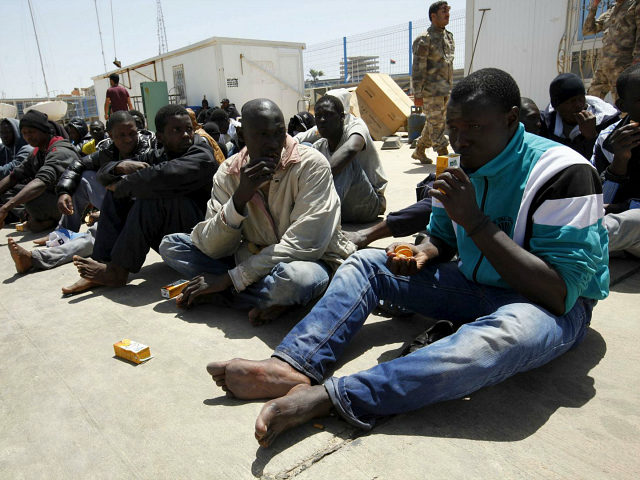Hundreds of migrants from West Africa are being bought and auctioned off at “slave markets” in Libya opened to the public, a United Nations agency has learned from survivors.
Captives are reportedly beaten on a daily basis and forced to call their families to pay for their release. Kidnappers starve to death those who cannot generate funds. Women captives are subjected to rape and physical abuse.
“Sub-Saharan migrants were being sold and bought by Libyans, with the support of Ghanaians and Nigerians who work for them,” reports staff from the branch of the U.N.’s International Organization for Migration (IOM) in Niger, which is helping victims return home.
“The situation is dire,” declared Mohammed Abdiker, the IOM director of operation and emergencies, who recently visited the Libyan capital, Tripoli. “The more IOM engages inside Libya, the more we learn that it is a vale of tears for many migrants. Some reports are truly horrifying and the latest reports of ‘slave markets’ for migrants can be added to a long list of outrages.”
This year, the U.N. Children’s Fund (UNICEF), revealed that some kidnappers are detaining African migrants in unofficial militia-run detention centers in Libya – where they are subjected to rape, beaten, forced into labor, and starved, in addition to various other atrocities.
“What we know is that migrants who fall into the hands of smugglers face systematic malnutrition, sexual abuse and even murder. Last year we learned 14 migrants died in a single month in one of those [detention] locations, just from disease and malnutrition. We are hearing about mass graves in the desert,” proclaimed the IOM director Abdiker.
Coastal Libya has become a major transit country for African migrants seeking to make the journey to Europe.
Since the U.S.-backed removal and subsequent execution of the autocratic Libyan leader Muammar Gaddafi, the vast, sparsely populated nation has been gripped by violence and chaos, making undocumented migrants passing through vulnerable to exploitation.
“Migrants who go to Libya while trying to get to Europe, have no idea of the torture archipelago that awaits them just over the border,” said Leonard Doyle, a top IOM spokesman in Geneva. “There they become commodities to be bought, sold and discarded when they have no more value.”
A Senegalese migrant, identified only as SC to protect him, survived the “slave markets.”
In describing his experience, he told IOM he was “bought” and then taken to his first “prison,” a private home that was holding at least 100 other migrants as hostages.
Another survivor told IOM kidnappers held him in a different “prison” along with “200” men and several women.
IOM learned from SC that “when somebody died or was released, kidnappers returned to the market to ‘buy’ more migrants to replace them. Women, too, were ‘bought’ by private individuals – Libyans, according to this witness – and brought to homes where they were forced to be sex slaves.”
“He described dreadful sanitary conditions, and food offered only once per day. Some migrants who couldn’t pay were reportedly killed, or left to starve to death,” adds IOM.
Moreover, SC told IOM the kidnappers often torture the migrants while on the phone with their family so that their relatives can hear their agony.
“In order to be released from this first house, SC was asked to pay 300,000 CFA (about USD [$] 480), which he couldn’t raise. He was then ‘bought’ by another Libyan, who brought him to a bigger house — where a new price was set for his release: 600,000 CFA (about USD [$] 970), to be paid via Western Union or Money Gram to someone called ‘Alhadji Balde’, said to be in Ghana,” points out IOM.
Eventually, SC managed to get money from his family and agreed to work as an interpreter for his captors to avoid further torture.
IOM is working to spread awareness across Africa about the horrors endured by migrants in Libya.

COMMENTS
Please let us know if you're having issues with commenting.